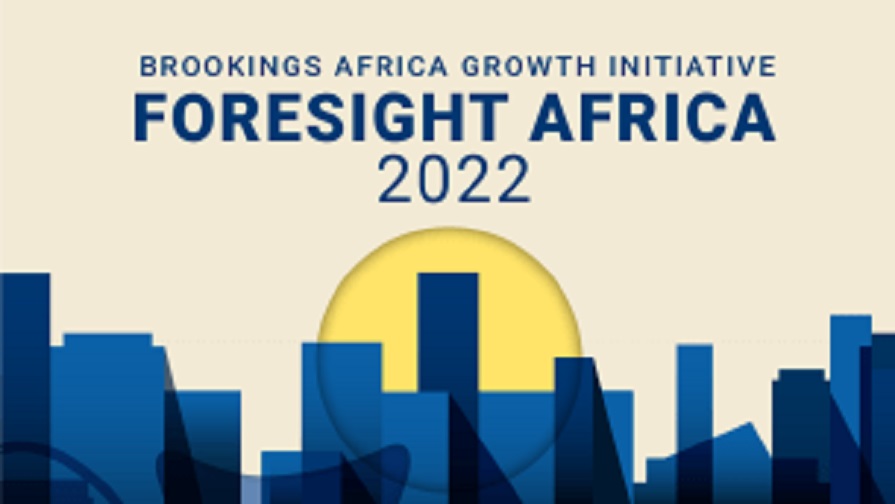
By Amar Bhattacharya
Climate finance will be critical for enabling Africa to adapt to the growing impacts of climate change and to ensure that its future development path is consistent with the goal of limiting global warming to no more than 1.5°C.
Africa has contributed little to global emissions so far, but it is already being disproportionately affected by the impacts of climate change.
How Africa develops will also be critical to future emissions given that its energy use is projected to grow rapidly to meet its development needs, with its share of the world’s population projected to increase from 17 percent to 40 percent by 2100, even as the world population increases from 7.9 billion to almost 11 billion by the end of the century.
A low-carbon, climate-resilient path offers Africa the opportunity to avoid the mistakes of the past and seize the opportunity to leapfrog to a better form of growth that can deliver on both its development and climate goals.
It will require, however, a major ramp-up in the scale and quality of investments in three critical areas: energy transitions and related investments in sustainable infrastructure; investments in climate change adaptation and resilience; and restoration of natural capital (through agriculture, food and land use practices) and biodiversity.
All three areas are important for the continent although relative needs will vary by country. Altogether, Africa will need to invest around $200 billion per year by 2025 and close to $400 billion per year by 2030 on these priorities.
Africa will also not be able to finance the scale of the investments needed without a dramatic step up in international effort.
In order to meet the scale and urgency of the challenge, Africa must be prepared to do its part. It must put in place robust institutional structures to set ambitious Nationally Determined Contributions and translate them into tangible investment programs and pipelines of projects.
Country platforms, such as the one that South Africa launched for its just energy transition at COP26, can be adopted by other countries to give impetus to scaling up transformative investments. Africa must also make concerted efforts to boost domestic resource mobilization to ensure the long-term sustainability of the necessary investments.
But Africa will also not be able to finance the scale of the investments needed without a dramatic step up in international effort. A starting point must be to tackle Africa’s debt constraints.
From a climate perspective, debt-for-climate and debt-for-nature swaps could be part of the overall solution. Africa will also need a major scaling up of both international public and private finance.
To date, only $80 billion of the $100 billion per annum commitment by developed countries for developing countries by 2020 has been met; of this, only around $20 billion was provided to Africa over 2016-2019. Given the scale of needs, the Africa Group of Negotiators has called for $1.3 trillion a year in climate finance to be made available from 2025.
COP27, as Africa’s COP, provides an opportune moment to go beyond the $100 billion through an immediate acceleration in the delivery of climate finance and setting a roadmap for an ambitious post-2025 target.
Concessional finance from bilateral donors remains the most critical component of climate finance for Africa given its fiscal constraints and large needs for adaptation and resilience, as well as nature and biodiversity.
It is also critical to scaling up other pools of climate finance, including the multilateral climate funds and the multilateral development banks, and ultimately leveraging the much larger sums of private finance that will be needed. Consequently, bilateral finance must be doubled by 2025 from its 2018 level, with a higher proportion of grants and a higher share for Africa.
Africa will also need much higher levels of support from development finance institutions, from both concessional and market-based windows.
The successful replenishment of IDA has provided a good base, but ambitious replenishments are also called for the African Development Fund and concessional climate funds, including the Global Environment Facility and the Climate Investment Funds.
Additional concessional support from the recycling of SDRs, including the proposal to establish a Resilience and Sustainability Trust in the IMF, as well as from philanthropic sources.
Africa should also be enabled to access the market-based windows of the MDBs for revenue-generating investments given the magnitude of the financing requirements. Private investment and private finance can also play a much bigger role than in the past, but this will require risk mitigation at scale by DFIs given that only four countries in Africa are investment grade and that 56 percent of African countries with a credit rating have suffered downgrades since the COVID-19 pandemic.
As Africa seeks to build back better from the pandemic and embark on the transformation of its economies to a low-carbon, climate-resilient future, it must be assured of effective and timely support.
COP27, as Africa’s COP, provides an opportune moment to go beyond the $100 billion through an immediate acceleration in the delivery of climate finance and setting a roadmap for an ambitious post-2025 target. Without such ambition, Africa will not meet its climate and development ambitions, and the world will fail in meeting its collective climate goals.
Editor’s Note: This is a viewpoint from the Foresight Africa 2022 report, which explores top priorities for the region in the coming year. Read the full chapter on climate change.











